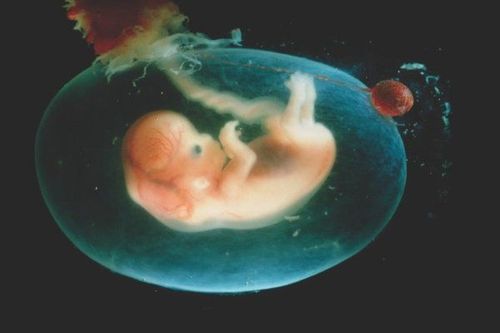This is an automatically translated article.
The article was professionally consulted by Specialist Doctor I Le Hong Lien - Department of Obstetrics and Gynecology - Vinmec Central Park International General Hospital. Doctor Lien has over 10 years of experience as a radiologist in the Department of Ultrasound at the leading hospital in the field of obstetrics and gynecology in the South - Tu Du Hospital.A low Amniotic Fluid Index (AFI), also known as oligohydramnios, occurs when the measured amount of amniotic fluid in the amniotic sac is lower than normal for the baby's gestational age.
1. The importance of amniotic fluid
Amniotic fluid contains many nutrients, hormones and antibodies that help fight infection, which are essential for the healthy development of the fetus. During pregnancy, this liquid mass acts as a cushion to protect the baby from strong impacts that cause trauma and is a soft space for the baby to comfortably grow and move in the womb.Amniotic fluid also keeps the umbilical cord from being compressed, improves blood circulation and enhances lubrication of the fetal body parts. In addition, the amount of amniotic fluid is also considered a measure of the baby's health as it reflects the amount of urine the baby produces from the 20th week of pregnancy.
Nurses, obstetricians often measure the height of the abdomen or use their hands to feel around the mother's abdomen to feel the amount of amniotic fluid. If there is an abnormality, they will order a diagnosis through an ultrasound. Tests to check amniotic fluid will not affect the health of mother and baby. Amniotic fluid index AFI is calculated in cm:
From 11-18cm: average index. After 36 weeks, the amount of amniotic fluid will gradually decrease until the day of delivery. Less than 5cm: oligohydramnios. This index will also depend on the gestational age. Taller than 24-25cm: polyhydramnios.

2. Causes of oligohydramnios
The percentage of women experiencing oligohydramnios is quite small, only about 4%. Depending on the cause, gestational age, and health status of both mother and child, the severity of low AFI also varies.Factors that can cause low amniotic fluid during pregnancy include:
Premature rupture of membranes. The placenta partially or completely detaches from the inner wall of the uterus before delivery. The mother has chronic high blood pressure or other related health problems. The effects of certain medicines, eg angiotensin-converting enzyme (ACE) inhibitors. Children with growth retardation or birth defects due to disorders in the kidney organs.
3. Treatment when amniotic fluid index AFI is low
If you are pregnant at 36-37 weeks and diagnosed with a low AFI, doctors may give you a pregnancy because this is considered the safest treatment. If the pregnancy is less than 36 weeks, the baby's health should be reviewed by fetal ultrasound, and find out why the pregnant woman has a low AFI. The mother is advised to drink plenty of fluids and rest if dehydration is diagnosed.During labor, if the amount of water in the amniotic sac is low, the obstetrician can insert a catheter into the cervix and give extra sterile fluid to replenish the amniotic sac. This is usually done if the baby's heart rate is abnormal during labor.

4. Risk of low amniotic fluid index (AFI)
In fact, there is still no effective and appropriate treatment or prevention for low AFI. Amniocentesis and perfusion treatments such as these may not provide enough fluid volume for the baby's lungs to develop normally. Your baby may have trouble breathing if he is born with oligohydramnios. The sterile fluid that doctors use also doesn't contain the necessary nutrients and antibodies like the mother's natural amniotic fluid.In addition, kidney failure is also a possible risk if the measured AFI is lower than expected. Sometimes, babies need dialysis or a kidney transplant to increase survival.
Amniotic fluid index (AFI) fluctuates differently depending on the stage during pregnancy, but too little or too much amniotic fluid is considered a pretty serious condition. Visiting your doctor for regular check-ups and follow-ups is something you should do during pregnancy if you're concerned about the volume of amniotic fluid around your baby.
Please dial HOTLINE for more information or register for an appointment HERE. Download MyVinmec app to make appointments faster and to manage your bookings easily.
Articles refer to the source mayoclinic













